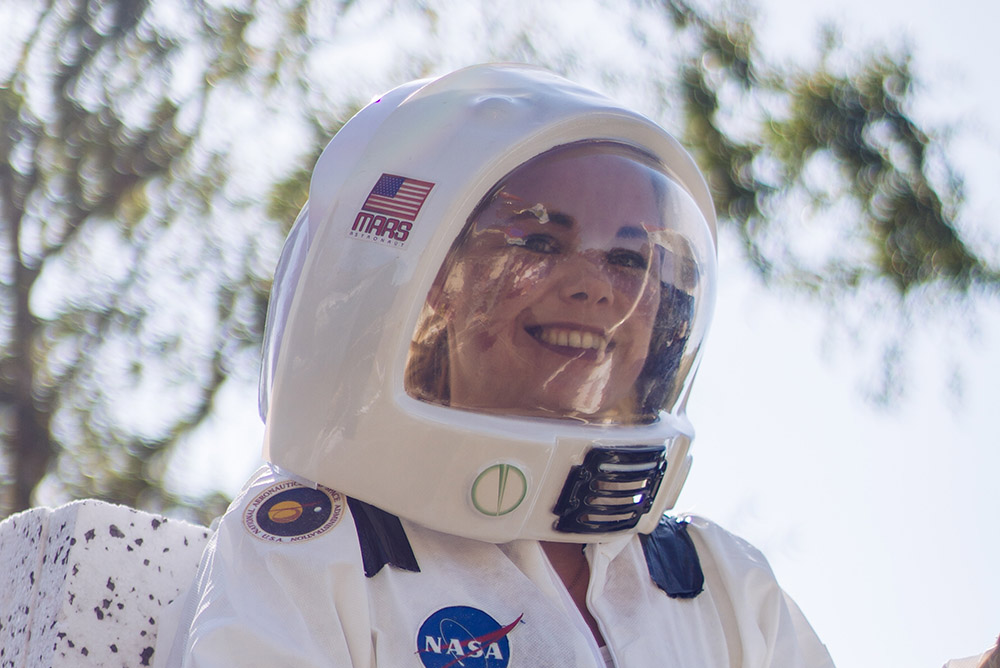Space travel includes travel and transport to, through and from space for civil or military purposes. The take-off on earth is usually done with a launch vehicle. The spaceship, like the lander, is manned or unmanned. The target can be the orbit of a celestial body, a satellite, planet or comet. Man has been to the moon several times, now man wants to go to Mars. The astronaut will not greet the robots that are already there as if he or she had been lonely for months. For on the spaceship he or she had been in the best of company. SPACE THEA spoke to him or her every day. When she noticed that he or she had problems, she changed her tone of voice, the voice became softer and happier, and what she said gave the astronaut hope again. How SPACE THEA really sounds and what she should say is the subject of a research project that will start in spring 2021 at the School of Business FHNW. Under the supervision of Prof. Dr. Oliver Bendel, a student is developing a voicebot that shows empathy towards an astronaut. The scenario is a proposal that can also be rejected. Maybe in these times it is more important to have a virtual assistant for crises and catastrophes in case one is in isolation or quarantine. However, the project in the fields of social robotics and machine ethics is entitled “THE EMPATHIC ASSISTANT IN SPACE (SPACE THEA)”. The results – including the prototype – will be available by the end of 2021.
BY OLIVER BENDEL
